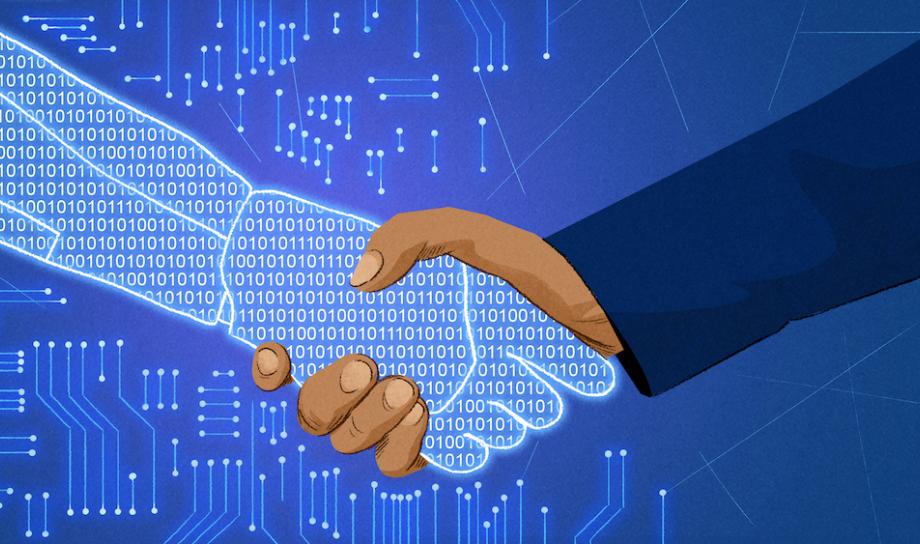In today’s rapidly evolving world, diplomacy encounters unprecedented challenges and opportunities due to the integration of artificial intelligence (AI) into the realm of international relations. As the global stage continues to transform, it is essential to explore the policy implications, economic and social impacts, safety and security concerns, privacy and data protection issues, and ethical dimensions of AI diplomacy.
The policy implications of AI are multifaceted and extend far beyond its initial promise of economic growth. While AI systems hold the potential to enhance economic productivity by automating processes, concerns loom large over the potential displacement of jobs and the ensuing unemployment crisis. Privacy, safety, and security are also paramount concerns in the AI era, necessitating the development of robust standards and regulations.
AI has the potential to usher in a new era of economic growth by streamlining production processes and making them smarter, faster, and more cost-effective. However, this advancement comes with a caveat – the fear that automation may render certain jobs obsolete, leading to workforce disruptions. On the flip side, proponents argue that AI innovation will create new employment opportunities.
AI’s application in various domains, including transportation and cybersecurity, raises significant safety and security concerns. The physical world implications of AI demand meticulous attention to human safety, while the technology itself is both a source of cybersecurity risks and a solution to combating cyber threats. Striking a balance is crucial.
The massive amounts of data processed by AI systems raise critical concerns about privacy and data protection. This issue is exemplified by the convergence of AI, the Internet of Things (IoT), and big data. Developers of AI systems must prioritise data integrity and protection, underscoring the need for responsible AI practices.
AI algorithms, imbued with judgement and decision-making capabilities, have raised ethical dilemmas encompassing fairness, transparency, accountability, and justice. Discrimination and bias in AI-driven decisions are legitimate concerns. Researchers are actively addressing these ethical challenges, striving to develop AI algorithms capable of self-explanation.
As the world grapples with these policy implications, the intersection of AI and diplomacy emerges as a pivotal arena for discussion and action. AI-assisted diplomatic decision-making presents both challenges and opportunities, particularly in crisis situations.
In times of crisis, when information is scarce and often biased, AI-assisted tools play a vital role in diplomatic efforts. They facilitate intervention planning, resource allocation, consular assistance, and effective communication. To harness the potential of AI in diplomacy, several crucial preconditions are necessary. AI models must account for biases and transparently communicate uncertainties in their outputs. This ensures fairness and accuracy in diplomatic decision-making. Prioritising interventions during crises requires data sharing while respecting privacy. Innovations such as data markets and secure computation schemes bridge the gap between data sharing and privacy concerns.
In conclusion, AI diplomacy is at the forefront of reshaping international relations. While the challenges and preconditions for its successful implementation are substantial, the potential benefits in crisis management and diplomatic decision-making are immense. As the world navigates this new frontier, it is imperative to strike a balance between harnessing AI’s capabilities and addressing its associated concerns. AI diplomacy represents a critical step forward in the evolution of global governance, offering innovative solutions to complex diplomatic challenges.
Sources:
AI DIPLOMACY: geo-politics, topics and tools in 2023 | Diplo. (n.d.). Diplo. https://www.diplomacy.edu/topics/ai-and-diplomacy
Pokhriyal, N., & Koebe, T. (2023). AI-assisted diplomatic decision-making during crises—Challenges and opportunities. Frontiers in Big Data, 6. https://doi.org/10.3389/fdata.2023.1183313
User, G. (2023). How AI Could Revolutionize Diplomacy: From ChatGPT to quantum computing, emerging technologies will offer new tools for peacemaking — fp21. Fp21. https://www.fp21.org/publications/how-ai-could-revolutionize-diplomacy
Jafarova, L. (2023). Artificial intelligence and digital diplomacy. E-International Relations. https://www.e-ir.info/2023/08/01/artificial-intelligence-and-digital-diplomacy/
Moore, A. (2023, April 7). From ChatGPT to quantum computing, new tech could reshape diplomacy. Foreign Policy. https://foreignpolicy.com/2023/03/21/ai-artificial-intelligence-diplomacy-negotiations-chatgpt-quantum-computing/#cookie_message_anchor


